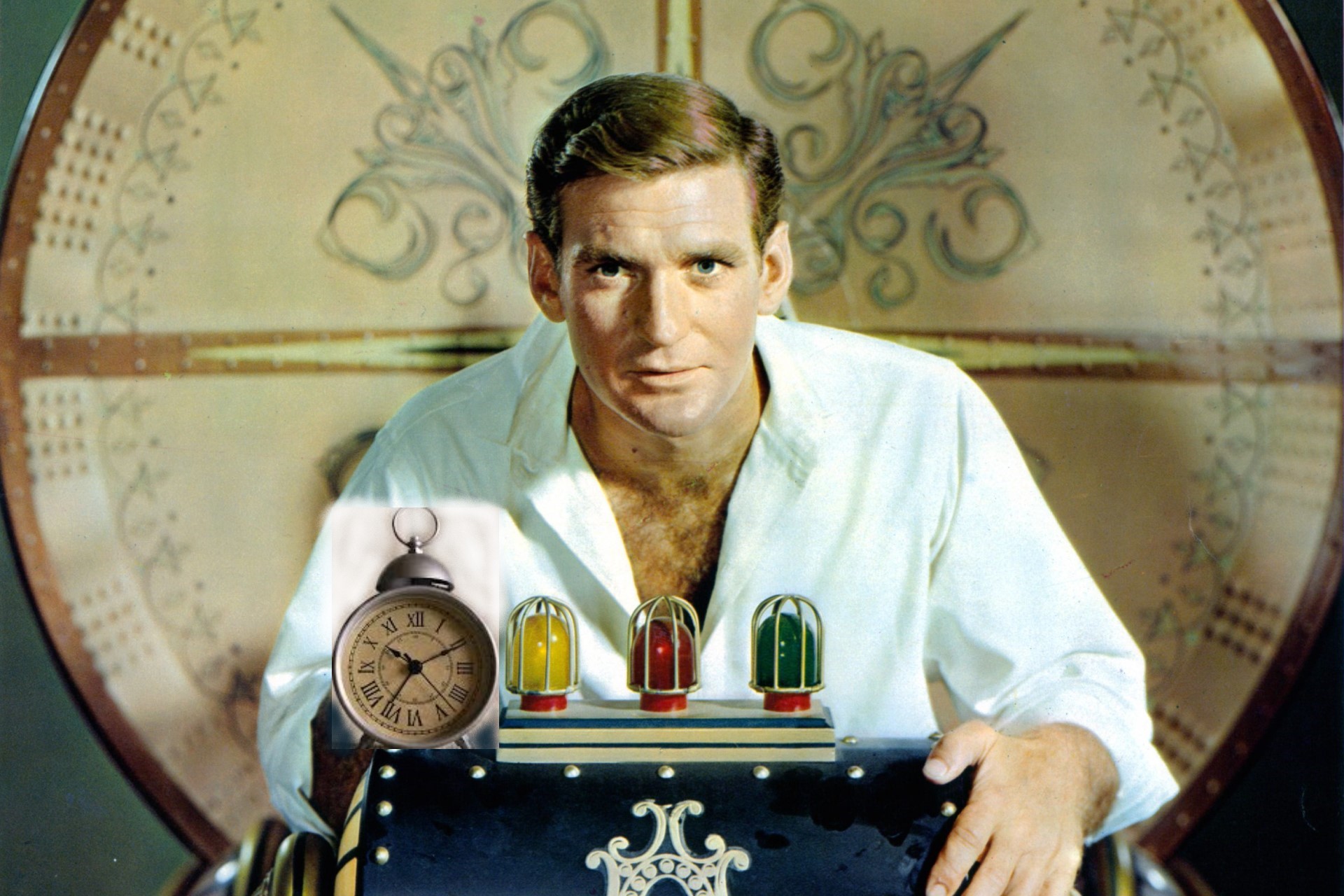Remembering Amy Winehouse and her tragic story in photos
Before Amy Winehouse began her long downward spiral that would ultimately end in her passing, the British pop icon directed her adoration for soul and jazz into a unique style of pop music that resounded with endless individuals.
While the world adored her big hits like "Recovery," it alluded to her real battles with drugs and alcohol. Sadly, Amy Winehouse lost her battle against addiction, passing away in her home on July 23, 2011. This year marks the 11th anniversary of her tragic death; join us as we take a look at the highlights and downward spiral of Amy Winehouse's life and career.
Born Amy Jade Winehouse, the singer came into the world on September 14, 1983, in London, England. Amy grew up in a middle-class home and dreamt of being a musician from a young age. Her grandmother Cynthia nurtured young Amy's ambitions, as she herself was a former singer.
(Photo: YouTube)
When Amy was just nine years of age, her parents divorced, which was challenging for her. Later, at age twelve, she decided to pursue her ambitions and applied for a spot at the Sylvia Young Theatre School.
Pictured: Amy with her mother.
Amy Winehouse was dedicated to making her dreams come true, and by age fourteen, she was already writing her own songs. However, it was at age sixteen she finally reached her jumping-off point when a singer she knew gave her demo tape to a record label that wanted a jazz singer.
(Photo: YouTube)
Thanks to her demo tape, by age 19, Amy had her first record deal. In 2003, a year later, her debut album 'Frank' was released and received critical acclaim.
Pictured: Amy in 2003.
Early on in her career, Amy earned a reputation of being a "party girl"; however, the truth about her addictions would soon come to light. When she met Blake Fielder-Civil, her bad habits got a whole lot worse.
All of Amy's dreams were coming true, and her album was No. 3 on the British charts. Unfortunately, despite all her success, Winehouse struggled with stage anxiety in front of an audience that was constantly getting bigger.
Winehouse began to frequent pubs in Camden to help her unwind, and it was there that she would meet her future husband, Blake Fielder-Civil.
Even though it was love at first sight with Blake for Amy, her friends and family became concerned about how her behaviour changed once she started going out with her new beau.
Nick Godwyn, who worked with Winehouse for six years and managed three of her tours, spoke about the change he saw in Amy in an interview with 'Times'. “Amy changed overnight after she met Blake. She just sounded completely different. Her personality became more distant. And it seemed to me like that was down to the drugs. When I met her she smoked weed but she thought the people who took class-A drugs were stupid. She used to laugh at them.”
Later, on ITV's 'Jeremey Kyle Show,' Blake Fielder-Civil admitted that he was the one that introduced Amy to hard drugs. The use of illegal substances combined with the tumultuous nature of the couple's relationship really made Amy Winehouse's life go off the rails.
When Winehouse's second album 'Back to Black' was released, the performer found herself catapulted into international fame in 2006. Shortly after, in 2007, Blake and Amy eloped in Miami, Florida.
The song "Rehab" from 'Back to Black' was one of the first warning signs for fans in 2006, and soon Amy's problems became undeniable to the public.
As Winehouse's fame grew, so did her reliance on alcohol and illegal substances to calm her demons. The paparazzi only made matters worse, documenting her and husband Blake Fielder-Civil's every move.
The marriage was not harmonious, and the couple dominated the tabloids but not in a positive light. They were arrested on several occasions for everything from assault to possession of illegal substances.
Amy took the most heat since she was the famous one in the marriage. In 2007 'The Philadelphia Inquirer wrote, “She’s only 24 with six Grammy nominations, crashing headfirst into success and despair, with a co-dependent husband in jail, exhibitionist parents with questionable judgment, and the paparazzi documenting her emotional and physical distress.”
In her album 'Back to Black,' Amy explored her issues with substances abuse and made it clear she was not interested in rehab.
It was rumored that even her own father didn't want her to take time to get clean and that he prioritized her work over her health. '
Back to Black' was Amy's most successful album, and she was nominated for six Grammy awards, of which she took home five.
However, Winehouse's legal troubles kept her from attending the 2008 Grammy ceremony in person. She was unable to obtain a U.S visa due to her legal issues and had to accept the awards from London via satellite.
Despite being at the height of her career, Amy was most definitely in a downward spiral. When she won her Grammy awards, her husband was in prison for assaulting a pub landlord.
That same year her father revealed that Amy had the early signs of what could lead to emphysema due to smoking hard drugs.
Alcohol was also a significant problem for the star, and she eventually ended up going to rehab on more than one occasion.
Pictured: Amy on her way to rehab in 2007.
However, despite her attempts, she was never able to recover from her addiction problem successfully.
In 2009 Blake and Amy divorced, and Winehouse was cancelling show after show, even a much anticipated Coachella performance.
By the time 2011 arrived, the award-winning singer was hardly working at all. Worst of all, when she did get on stage, she often couldn't perform properly, slurred her words, and often fell down.
One month before her passing, Amy Winehouse began her comeback tour, performing in Belgrade, Serbia.
The performance was disastrous; Winehouse appeared on stage intoxicated and unable to remember the words to her songs or even the name of the city where she was performing.
The audience of 20,000 people booed her so loudly she was forced off the stage. It would be the last show she would ever perform.
Meanwhile, Christina Romete, Amy Winehouse's doctor, had been attempting to get the star into psychological therapy for months.
However, Winehouse was resistant to the idea, so Romete focused on what she could do to aid the performer with her physical health. She prescribed Amy Librium to help with her alcohol withdrawal symptoms and anxiety.
Despite her best attempts, Amy simply wasn't capable of giving up alcohol. According to her doctor, it was a constant cycle, and the singer was unable to stay sober for more than a few weeks at a time.
The night before she died, Winehouse called her doctor to tell her that she had relapsed yet again, that she didn't want to die, and apologized for wasting the doctor's time.
That same night, Amy stayed awake watching YouTube videos of her early performances with her bodyguard Andrew Morris.
In a Channel 5 documentary about Amy Winehouse's death, Andrew Morris spoke of that night: "She was showing me some clips on her laptop, and she was singing, and she said, 'Boy, I can sing,' and I said, 'Damn right, you can sing'."
The next morning, Amy's bodyguard and friend planned to wake her up at ten o'clock in the morning, but she appeared to still be resting, so he left her. It wasn't until 3 pm that Morris realized something was wrong.
In a statement to 'The Independent, ' Morris said, “It was still quiet, which seemed strange. She was in the same position as in the morning. I checked her pulse but I couldn’t find one.”
On July 23rd, 2011, Amy Winehouse passed away due to alcohol poisoning. The coroner noted that her blood-alcohol level was .416, five times higher than the legal driving limit in England.
Although fans around the world mourned the sudden loss of the British star, very few were surprised. Amy Winehouse's death was foreshadowed by her way of life.
Following Amy Winehouse's death, there was a lot of finger-pointing. In the documentary 'Amy' viewers learn about how Amy's own father (pictured in blue shirt) hesitated to send her to rehab for help with her addictions.
However, others such as the paparazzi and her ex-husband Blake have also been heavily accused of contributing to her downward spiral.
Amy Winehouse was just 27 years old when she died far before her time, joining many other tortured artists who pertain to the "27 Club".
The music world lost yet another icon much too early. We can't help but wonder if Winehouse had been able to recover from her addictions what she would be doing now.























































